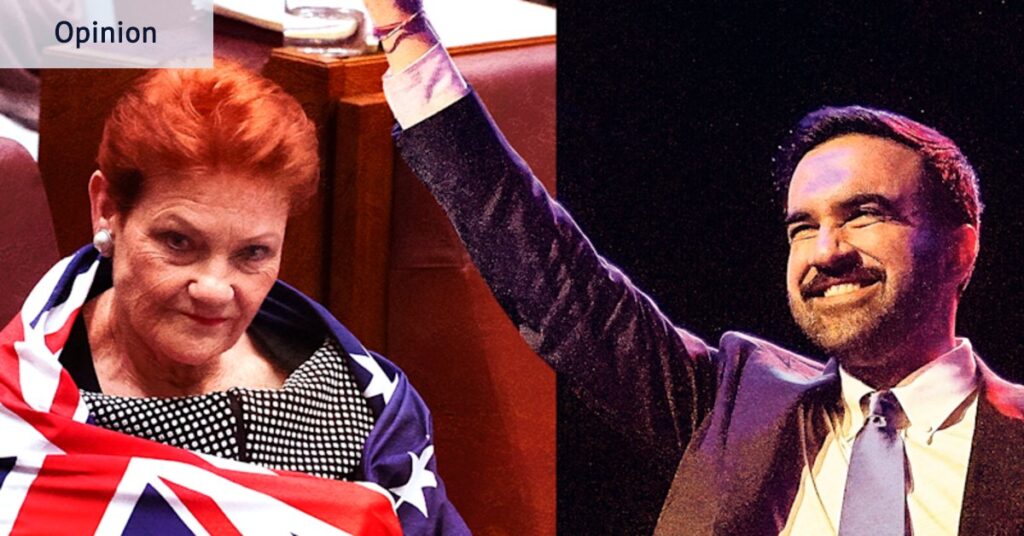
In a week marked by political upheavals, Zohran Mamdani’s triumph in the New York City mayoral race and the unexpected surge of One Nation in Australia have captured global attention. Mamdani, a socialist Muslim and vocal anti-Zionist, defied expectations in a city traditionally dominated by the Democratic establishment. Meanwhile, in Australia, a new poll has positioned Pauline Hanson, Barnaby Joyce, and Andrew Hastie among the country’s most favored politicians, with One Nation polling as high as 14 percent.
These developments appear to challenge prevailing political wisdom. In the United States, Mamdani’s victory suggests a potential shift leftward for the Democrats, while in Australia, the rise of One Nation indicates a rightward tilt. However, these events may not signify a break from the norm but rather a continuation of existing trends.
Political Context and Background
Mamdani’s victory is emblematic of New Yorkers’ growing disenchantment with the Democratic establishment. Despite attacks on his stance regarding Israel, Mamdani secured a third of the Jewish vote, signaling a shift in American attitudes. His campaign focused on pressing issues such as the cost of living, advocating for policies like fast and free public transportation, increased taxes on the wealthy, and rent control measures.
However, Mamdani’s win occurred within the confines of a predominantly Democratic city, raising questions about the broader applicability of his approach. Historically, New York City mayors have rarely redefined national politics, and it remains uncertain whether Mamdani’s strategies would resonate in swing states.
One Nation’s Resurgence
Across the Pacific, One Nation’s resurgence has stirred the Australian political landscape. On the eve of the recent election, polls indicated a late surge for One Nation, prompting Peter Dutton to address cultural issues in a bid to retain right-wing support. Despite this, One Nation’s vote share fell short of expectations, and the Coalition lost ground to Labor in urban areas.
This pattern underscores the deepening divide between urban and rural voters, a phenomenon mirrored in the United States. In America, this divide has bolstered Republican strength, while in Australia, it threatens the Coalition’s viability, potentially consigning it to prolonged opposition.
Implications of Urban-Rural Divides
The urban-rural divide is a defining feature of modern politics. In the United States, this divide has handed Republicans a structural advantage, allowing them to win rural votes by significant margins. Conversely, Australia’s urbanization means the Coalition faces challenges in bridging this gap, risking further fragmentation.
For Mamdani and One Nation to effect lasting change, they must bridge this chasm. Mamdani, as a city politician, may not need to test this divide, but for One Nation, urban gains remain elusive. The party’s rise could exacerbate the divide, challenging the Coalition’s ability to balance rural and urban interests.
Expert Opinions and Future Outlook
Political analysts suggest that these developments reflect broader societal shifts rather than isolated events. The success of Mamdani and One Nation highlights the evolving political landscape, where traditional party lines are increasingly blurred.
“The rise of figures like Mamdani and Hanson indicates a growing disillusionment with the status quo,” said political analyst Dr. Sarah Thompson. “Voters are seeking alternatives that address their immediate concerns, whether it’s economic inequality in New York or cultural identity in Australia.”
As these political waves continue to unfold, the implications for future elections remain uncertain. In the United States, the Democratic Party may need to reassess its strategies to appeal to both urban and rural voters. Similarly, the Australian Coalition faces a critical juncture, as it navigates the challenges of appealing to a diverse electorate.
The coming years will reveal whether these political shifts represent fleeting moments or the dawn of new political paradigms. For now, Mamdani’s victory and One Nation’s rise serve as reminders of the dynamic and unpredictable nature of politics in an ever-changing world.






